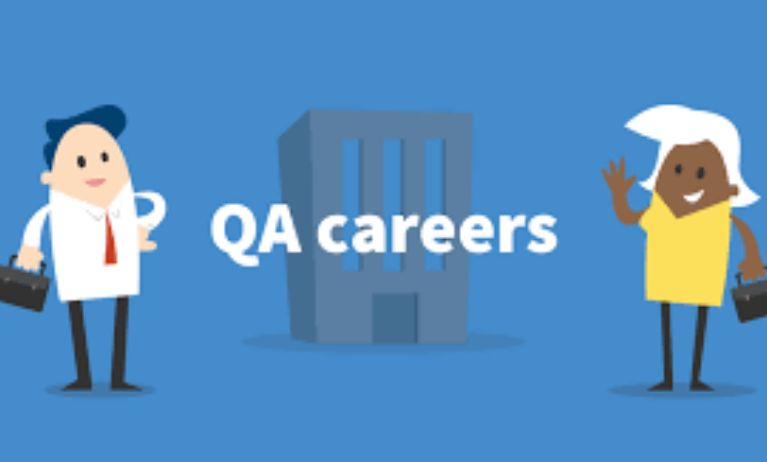A career as a Business Analyst (BA) is both rewarding and challenging. Business Analysts play a crucial role in bridging the gap between IT and business teams, ensuring that organizations achieve their strategic objectives through effective use of technology and business processes. If you’re preparing for a Business Analyst interview, being well-versed in the typical questions and having well-structured answers can significantly boost your chances of success. Below, we discuss some of the most common Business Analyst interview questions and how to answer them effectively.
Can You Explain What a Business Analyst Does?
Answer: A Business Analyst is responsible for identifying business needs and determining solutions to business problems. This involves analyzing and documenting business processes, gathering requirements, and ensuring that the final solution meets those requirements. Solutions may include systems development, process improvement, organizational change, or strategic planning.
Why It’s Asked: The interviewer wants to ensure you understand the core responsibilities of a BA and how they contribute to the organization.
What Techniques Do You Use to Gather Requirements?
Answer: Common techniques for gathering requirements include:
- Interviews: Conducting one-on-one discussions with stakeholders to understand their needs.
- Workshops: Facilitating group sessions with stakeholders to gather collective input.
- Surveys/Questionnaires: Distributing structured questions to gather quantitative data.
- Observation: Watching users interact with systems or processes to understand their needs.
- Document Analysis: Reviewing existing documentation to extract relevant information.
Why It’s Asked: The interviewer wants to assess your experience with various requirement-gathering techniques and your ability to choose the right method for different situations.
How Do You Handle Changing Requirements?
Answer: Handling changing requirements involves several steps:
- Prioritization: Working with stakeholders to prioritize the most critical changes.
- Impact Analysis: Assessing the impact of changes on the project timeline, scope, and budget.
- Communication: Keeping all stakeholders informed about the changes and their implications.
- Documentation: Updating requirements documents to reflect the changes.
- Flexibility: Being adaptable while ensuring that changes do not derail the project.
Why It’s Asked: This question tests your ability to manage scope creep and ensure that changing requirements do not negatively impact project outcomes.
Can You Describe a Time When You Identified a Major Issue in a Business Process? How Did You Address It?
Answer: Provide a specific example where you identified inefficiencies or issues in a business process. Explain how you conducted a thorough analysis, involved key stakeholders, proposed solutions, and implemented the changes successfully. Emphasize the results, such as improved efficiency, cost savings, or enhanced customer satisfaction.
Why It’s Asked: The interviewer wants to see your problem-solving skills in action and understand how you approach process improvement.
What Tools and Software Are You Proficient In?
Answer: Business Analysts often use various tools to perform their tasks, including:
- Requirement Management Tools: JIRA, Confluence, Trello.
- Process Modeling Tools: Microsoft Visio, Lucidchart, Bizagi.
- Data Analysis Tools: Excel, SQL, Tableau, Power BI.
- Project Management Tools: Asana, MS Project, Monday.com.
Why It’s Asked: The interviewer wants to know if you have hands-on experience with the tools necessary for the job and how proficient you are in using them.
How Do You Ensure That the Final Product Meets the Requirements?
Answer: Ensuring that the final product meets the requirements involves:
- Requirement Traceability: Mapping requirements to their corresponding test cases and ensuring coverage.
- Involvement in Testing: Participating in or overseeing User Acceptance Testing (UAT) to validate that the solution meets the business needs.
- Stakeholder Reviews: Regularly reviewing progress with stakeholders to confirm that their expectations are being met.
- Sign-offs: Obtaining formal approval from stakeholders that the deliverables meet the requirements.
Why It’s Asked: The interviewer wants to assess your approach to quality assurance and how you ensure that project outcomes align with business objectives.
Can You Explain the Difference Between a BRD and an SRS?
Answer:
- BRD (Business Requirement Document): A document that outlines the high-level business requirements and objectives. It is typically written by a Business Analyst and serves as a contract between the business and the project team.
- SRS (System Requirement Specification): A detailed document that describes the functional and non-functional requirements of the system to be developed. It is more technical and serves as a guide for developers.
Why It’s Asked: The interviewer wants to assess your understanding of key documentation in the BA role and how you distinguish between different types of requirements documents.
How Do You Prioritize Requirements?
Answer: Prioritizing requirements involves considering factors such as:
- Business Value: Determining which requirements provide the most value to the business.
- Stakeholder Needs: Understanding the priorities of different stakeholders and balancing them.
- Feasibility: Assessing the technical and financial feasibility of implementing requirements.
- Dependencies: Identifying dependencies between requirements and prioritizing those that are prerequisites for others.
Why It’s Asked: This question tests your ability to make strategic decisions that balance stakeholder needs with project constraints.
How Do You Handle Conflicts Between Stakeholders?
Answer: Handling conflicts involves:
- Active Listening: Understanding the perspectives of all parties involved.
- Facilitation: Bringing stakeholders together to discuss their differences and find common ground.
- Mediation: Acting as a neutral party to help resolve conflicts and reach a consensus.
- Documentation: Clearly documenting decisions and agreements to avoid future misunderstandings.
Why It’s Asked: The interviewer wants to gauge your interpersonal skills and your ability to navigate complex stakeholder dynamics.
What Is the Importance of a Gap Analysis?
Answer: A Gap Analysis is a method used to compare the current state of a process or system with the desired future state. It helps in identifying gaps that need to be addressed to achieve the desired outcomes. The analysis can be used to identify areas for improvement, define requirements, and prioritize actions.
Why It’s Asked: The interviewer is assessing your ability to identify and address gaps in business processes, which is a key responsibility of a Business Analyst.
Can You Describe the Agile Methodology and Your Experience with It?
Answer: Agile is an iterative approach to project management and software development that focuses on delivering small, incremental changes. It involves close collaboration with stakeholders, flexibility to adapt to changes, and continuous delivery of value. Describe your experience working in Agile environments, your role in sprints, and how you contributed to delivering value in an iterative manner.
Why It’s Asked: This question assesses your familiarity with Agile methodologies, which are commonly used in modern business environments.
How Do You Conduct a SWOT Analysis?
Answer: A SWOT Analysis involves identifying the Strengths, Weaknesses, Opportunities, and Threats related to a business or project. It is a strategic planning tool used to understand internal and external factors that could impact the success of a project. Describe how you gather data, analyze it, and use the findings to inform decision-making.
Why It’s Asked: The interviewer wants to know if you are proficient in using strategic tools to analyze business scenarios and inform decisions.
What Is the Role of a BA in Project Management?
Answer: A Business Analyst plays a crucial role in project management by:
- Defining Scope: Clearly defining the project scope and ensuring alignment with business objectives.
- Facilitating Communication: Acting as a bridge between stakeholders and the project team.
- Risk Management: Identifying and mitigating risks related to requirements and stakeholder expectations.
- Ensuring Quality: Ensuring that the project deliverables meet the business requirements.
Why It’s Asked: The interviewer is assessing your understanding of how a BA fits into the larger project management framework.
How Do You Manage Stakeholder Expectations?
Answer: Managing stakeholder expectations involves:
- Setting Clear Objectives: Defining what success looks like from the outset.
- Regular Communication: Keeping stakeholders informed of progress, changes, and any issues that arise.
- Managing Scope: Ensuring that the project stays within the agreed-upon scope and addressing any changes promptly.
- Delivering Value: Continuously demonstrating how the project is delivering value to the stakeholders.
Why It’s Asked: The interviewer wants to see if you have the skills to manage stakeholder relationships effectively, which is critical to project success.
What Challenges Have You Faced as a Business Analyst, and How Did You Overcome Them?
Answer: Discuss specific challenges you have encountered, such as:
- Unclear Requirements: How you clarified and documented them through workshops or additional stakeholder meetings.
- Stakeholder Conflicts: How you facilitated resolution through mediation and compromise.
- Technical Limitations: How you worked with the technical team to find feasible solutions within constraints.
- Project Delays: How you managed scope and re-prioritized tasks to meet deadlines.
Why It’s Asked: The interviewer is assessing your problem-solving abilities and how you handle adversity in the workplace.
Conclusion
Preparing for a Business Analyst interview requires a solid understanding of both the technical and soft skills needed for the role. By familiarizing yourself with these common interview questions and crafting thoughtful, well-structured answers, you can significantly enhance your chances of making a strong impression. Remember to tailor your responses to your experiences, highlight your strengths, and demonstrate your ability to add value to the organization. Good luck with your interview preparation!


























